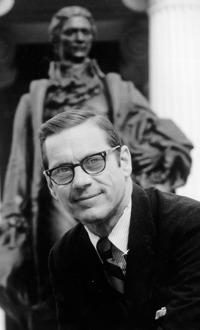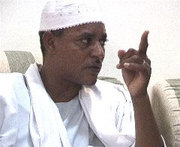The following is a work of fiction. Here is the Table of Contents, which is updated as new chapters are written.
It is the third in a series of sci-fi novels of the type known as
alternate history. What’s different is that this series takes place in
our time, with characters familiar in your real life.
The first book in the series, The Chinese Century, was written late 2004. Its table of contents is here. The second, The American Diaspora, was written in 2005. The table of contents for that book is here.
There was one thing which made Cheney even happier than power. Money.
As a politician, for most of his life, he had been a servant to money, and to those who had more of it than he did. It galled him.
No one knew how William Simon, treasury secretary for the late President Ford, had upset him, with his preening ways, his superior attitude. Simon came from some money, knew money, and knew how to make money. He was wildly popular, far more popular than Cheney himself, even though Cheney was the President’s chief of staff and Simon a mere cabinet head. Even though Cheney knew he could run rings around Simon.
What he learned from that is that made you a better man was money. Money was power, the m to power’s e in the e=mc2 of life.
Don Rumsfeld, now. Don was different. Don respected him. Don understood him. Don knew the link, knew that power which could not be translated was a sucker’s game, and that the move back-and-forth – from business to government and back again – was the real path to wealth.
Don made his play at Searle, as Cheney did a decade later at Halliburton. But while Don was satisfied with his Searle money, satisfied with the millions in his bank account and the power he won in Bush’s Defense Department, Cheney just wasn’t. He understood, as Rumsfeld now did not, that there was rich, and then there was rich. There was the wealth of comfort, and then there was the greater wealth of power.
That was the wealth Cheney sought in this desert. The kind of wealth which bent the world to your will. Measured not in millions of dollars, but in billions. And he was well on his way to it.
Everything about the Dubai Central Market was designed to favor the house, to favor the management, and ultimately to favor Cheney. The tiniest margins might be taken on trades, just fractions of a cent to the dollar, and that brought in the business which detested the regulated transaction fees of major exchanges. But all those fractions of pennies flowed into the market, of which Cheney was the major partner, alongside the Sheikh.
Listed exchanges also had other requirements. Reporting requirements. Set capital requirements. Transparency requirements. Regulations of all sorts. All of which asked questions, like where did your money come from, and where was it going?
Cheney had helped write some of those requirements, and approved others in the name of fighting the War On Terror under President Bush. He knew how honest businessmen chafed under them. And he knew that, by simply waiving them, he could ensure the DCM its place on top of the world’s financial pyramid.
But there was one more ingredient he needed for success. Few rules couldn’t mean no rules. Otherwise shysters would cheat the house, would cheat Dubai, would cheat him.
Thus the agreement with Prince. A master contract with Blackwater USA, registered here in Dubai, where secrecy was a good like any other, and where Cheney’s secrets were made holier than Mecca.
The agreement was for a fixed retainer, against services, and with the interests of DCM to be listed first on Prince’s priority list. To that end Prince today had chartered Blackwater DCM, headquartered here in Dubai, and if some future court came poking around America some day, looking for Blackwater’s financial assets, they would be in for a shock.
Cheney fingered the corner of the paper before him and grunted happily. When they came for Blackwater, technically, Blackwater USA was now broke.
Blackwater had gained this boon by proving itself to Cheney, using its power to impose his will. Sudan’s Janjaweed militia had been quick to park its money with DCM, and the idiots had made a few bad trades. They saw the long term trend of the Chinese Yuan’s rise, they leveraged it for a quick kill, but the short term trend went against them. They wound up losing more than they had.
Now, in a civilized society you’d declare bankruptcy, you’d give your creditor pennies on the dollar and, in the normal course of business, you’d turn up elsewhere to do business. There was continued cash flow from smuggling, from stealing the government’s oil, from promising not to hurt certain families and then for hurting them anyway.
Money was not civilized. When money was attacked, money defended itself. This was the new rule.
Cheney felt he was tough but fair. Janjaweed leader Musa Hilal had suddenly found himself dead the other day, his secret camps were found and destroyed, his infrastructure wrecked, his Sudanese army protectors suddenly imprisoned, his fighters scattered to the winds, without supplies, to die in the desert like rats. It had taken Prince and his men just three days to do the job, and they were glad to do it. No government resolution, and no publicity. Just quick, surgical, deadly.
Now the word would get out, in places where it needed to get out. Impotent fools like Ban ki-Moon would claim a victory for diplomacy. Cheney’s friends in the American government would silently thank him, but it had nothing to do with them.
The market’s laws would be obeyed, and in this market, people had now learned, Cheney’s word was the law.











